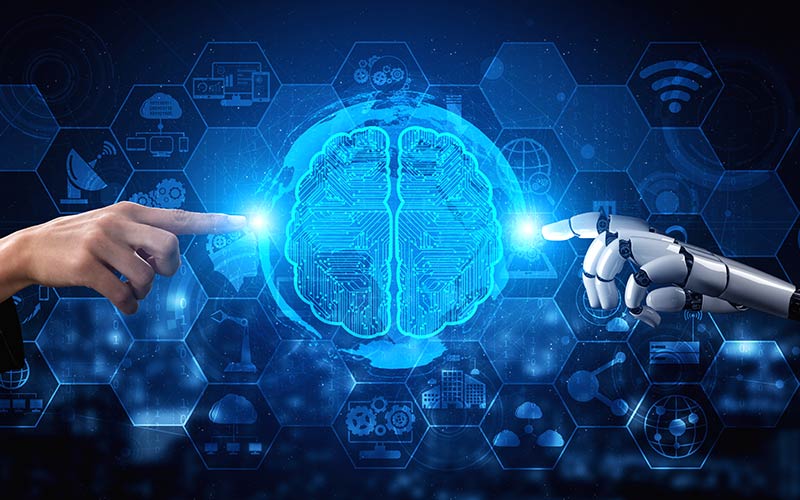What are IP Addresses? IP addresses are fundamental to the digital infrastructure of any business…

Artificial Intelligence
Artificial Intelligence (AI) is a game-changing technology that has revolutionized the way we live, work, and interact with each other. From virtual assistants to self-driving cars, AI is now a part of our daily lives, and its impact on the future is difficult to overstate. In the business world, AI is transforming the way organizations operate, and perhaps nowhere more so than the cloud technology space. In this blog post we will discuss the impact of AI, with a specific nod to ChatGPT, on the future of IT departments and the way they consume cloud services.
The Impact of AI and ChatGPT on IT Departments
The rise of AI has already begun to dramatically alter the way IT departments function. IT departments are increasingly turning to AI to automate routine tasks, monitor systems, and analyze data in a bid to reduce costs and increase efficiencies. This shift is freeing up IT staff to focus on more strategic initiatives, such as innovation and improving customer experiences.
One instance of AI impacting IT departments is evident in cloud computing. Machine learning algorithms, for example, can analyze data to identify performance issues, predict future usage patterns, and optimize resource allocation. This approach can lead to significant cost savings and improved performance, with AI contributing to a more efficient infrastructure.
The Impact of AI and ChatGPT on Other Areas of Business
The impact of AI on IT departments is not limited to the immediate realm of IT. Because all areas of an organization leverage technology, these impacts are transforming the way businesses operate across all departments (finance, marketing, sales, operations, human resources, etc).
- Finance: AI-powered solutions are helping financial organizations automate routine tasks and identify patterns in financial data.
- Example: chatbots can assist with customer inquiries, and predictive analytics can be used to forecast market trends.
- Marketing: AI-powered tools are helping marketers deliver personalized content and offers to customers.
- Example: AI-powered chatbots can engage with customers in real-time, providing personalized recommendations and support.
- Sales: AI-powered tools are helping sales teams automate tasks and improve their sales process.
- Example: AI-powered chatbots can assist with lead generation and qualification, freeing up sales reps to focus on closing deals.
- Operations: AI-powered tools are helping operations teams optimize supply chains, manage inventory, and reduce costs.
- Example: machine learning algorithms can analyze data to identify inefficiencies in production and recommend improvements.
- Human Resources: AI-powered tools are helping HR teams automate tasks, improve candidate selection, and identify areas for employee training and development.
- Example: chatbots can assist with employee inquiries, and predictive analytics can be used to identify potential retention risks.
Contextualizing AI in the Precipice of a Financial Downturn
In the current economic climate businesses are facing significant challenges that include financial uncertainty, reduced consumer spending, and supply chain disruptions. Once again, AI-powered solutions can help businesses navigate these challenges by enabling them to make smarter business decisions, react more quickly, and be more efficient.
AI-powered predictive analytics offer an excellent example, helping businesses anticipate changes in consumer behavior and adjust their operations accordingly. AI-powered chatbots can assist with customer inquiries, freeing up staff to focus on critical service issues. Machine learning algorithms can analyze supply chain data to identify potential bottlenecks and reduce costs.
Leveraging AI Resources to Survive a Rapidly Changing Global Economy
As the global economy continues to evolve rapidly, smart businesses are always looking to improve their agility and adaptability. Leveraging AI resources can enable companies to make data-driven decisions, streamline operations, and reduce costs (dramatically, in some cases). By automating routine tasks and enabling staff to focus on higher-value initiatives, businesses gain an advantage in remaining competitive amidst a rapidly changing global economy.
To many of us, it is already clear that AI is a transformative technology that is changing the way businesses operate at all levels. By leveraging AI resources we expect to see continually more intelligent decisions, made with greater speed and anticipation than at any time in the past.


